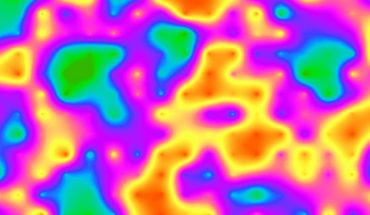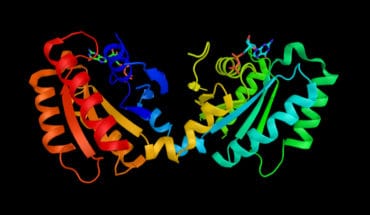International study to better treat children with severe pneumonia complication: An international study led by Murdoch Children’s Research Institute has secured philanthropic funding to better treat children with a severe complication of pneumonia.
Associate Professor Catherine Satzke received the $620,993 E.W. AI Thrasher Award to advance research into pleural empyema, which causes fluid to fill the space around the lungs, making it hard for children to breathe and increasing the risk of permanent lung damage and death.
Associate Professor Satzke and her team at Murdoch Children’s have developed a simple molecular test to diagnose pleural empyema that ultimately aims to improve childhood pneumonia treatment in Asia and around the world.
To deliver on this vision, Murdoch Children’s will team up with leading Asian molecular microbiologists, respiratory and infectious diseases clinician-scientists and vaccinologists (scientists who develop vaccines).
The study will involve collaborators in Thailand, Indonesia and in the Philippines.
“Every year more than 900,000 children die from pneumonia, an infection that inflames the lungs’ air sacs. Over 40 per cent of those children are in Asia,” Associate Professor Satzke said.
Around 5 per cent of children with pneumonia will develop pleural empyema, which is treated with intravenous antibiotics followed by drainage of the infected pleural fluid.
Once drained, scientists analyse the infected fluid by trying to grow bacteria to determine the cause of the infection. Unfortunately, this process is slow and unsuccessful in around 80 per cent of cases.
“Because the treating doctor doesn’t know the bacterial cause of the infection in 80 per cent of children with pleural empyema, they often prescribe prolonged untargeted antibiotic therapy. This impacts patient care and can also lead to widespread antibiotic resistance,” she said.
To bridge this gap, Associate Professor Satzke and her team have developed a simple, low-cost and effective test that detects the most common bacterial causes of paediatric empyema globally.
“Our test can detect the cause of infection in 90 per cent of children and outperforms traditional culture growth by increasing bacterial identification five-fold,” she said. “We estimate that our test could reduce untargeted antibiotic therapy in 70 per cent of cases by 20 days.”
Associate Professor Satzke and her team will now bring their test to children in Asia where the disease burden is greatest. The multicentre study will run over three years in Thailand, the Philippines and Indonesia, by recruiting 400 children under 18 with pleural empyema.
Associate Professor Satzke said the study would help introduce a test for pleural empyema in these three countries and bring the benefits of molecular diagnostics to those who need it most.
“We aim to improve antibiotic stewardship in Asia, which is a global health issue, and improve patient care for children with pleural empyema in Asia and around the world,” she said.
Thrasher Research Fund’s Research Manager Brittni Smith said the Fund was excited by the project’s clear data which showed significant improvement of this test versus gold standard culture.
“Dr Satzke has an excellent track record, and it was particularly excellent to see the involvement of local teams and investigators throughout Asia,” she said. We felt that this could have a huge impact on care for children with pneumonia, bringing improved technology to help with treatments and antibiotic stewardship.”
- Gut microbiome could delay onset of type 1 diabetes - 3rd April 2025
- The da Vinci 5 Robot Is Set To Transform Bariatric Care: - 31st March 2025
- Beyond money: the hidden drivers fuelling child food insecurity - 31st March 2025






